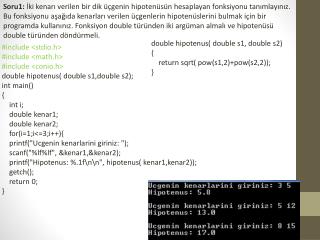

C++ is also a complex and difficult programming language, which is really not meant for dummies. C++ provides a huge set of reusable standard libraries, in particular, the Standard Template Library (STL).Ĭ++ is a powerful language for high-performance applications, including writing operating systems and their subsystems, games and animation. You can apply the same algorithm to different data types. C++ introduces generic programming, via the so-called template. The OO extension facilitates design, reuse and maintenance for complex software. C++ enhances the procedural-oriented C language with the object-oriented extension. Like C, C++ allows programmers to manage the memory directly, so as to develop efficient programs.

C++ supports (almost) all the features of C. C++2a: the next planned standard in 2020.C++14: Infomally called C++1y, is a small extension to C++11, with bug fixes and small improvement.It adds some new features to the language more significantly, it greatly extends the C++ standard library and standard template library (STL). Informally called C++0x, as it was expected to finalize in 200x but was not released until 2011. Commonly refer to as C++98/C++03 or First C++ standard. Introduction to C++ C++ StandardsĬ++ is standardized as ISO/IEC 14882. To be a proficient programmer, you need to master two things: (1) the syntax of the programming language, and (2) the core libraries (i.e., API) associated with the language. Otherwise, read " Introduction To C++ Programming for Novices and First-time Programmers".

I assume that you could write some simple programs. This chapter explains the features, technical details and syntaxes of the C++ programming language.


 0 kommentar(er)
0 kommentar(er)
